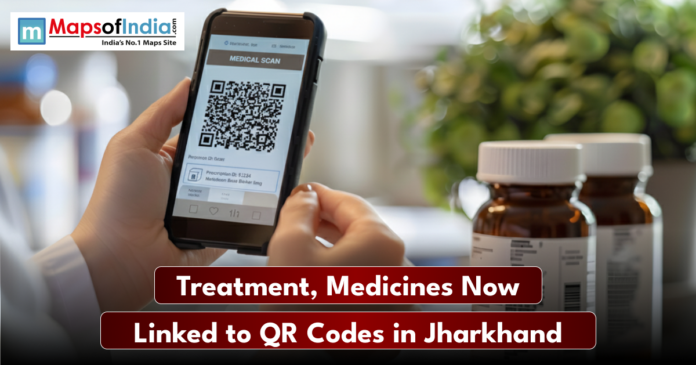A big digital transformation is underway in the Jharkhand public healthcare network, with medical colleges within the state preparing to implement a new integrative system in the form of QR codes that will simplify patient services through registration to medicine distribution and treatment tracking. The state health department claims that the system is already underway in several large medical institutions and will shortly be widespread in the government-operated medical colleges in Jharkhand.
With the new system, patients requesting treatment will be registered using a QR code. Once a specific app is downloaded or registered by the hospital facilities, a certain QR code connected to each patient and related to their digital health record will be issued. This QR code will be read on each major stage of their hospital visitation process, such as outdoor and indoor registration, admission, treatment within emergency wards, and pharmacy services.
The process is meant to get rid of paperwork, shorten the waiting time, and implement a traceable and transparent system through which medical treatment is administered and medicine dispensed. To doctors and hospital management, the new platform will enable them to log in real-time treatment decisions, prescriptions, and medicine schedules directly on a centralized digital platform. In the case of pharmacies, it will be thoroughly organized: when a doctor posts the prescription, the data will automatically be received by the pharmacy, where the medicine will be released only after scanning the QR code of the patient.
Health officials stated that the new system will also ensure that all the steps in the treatment process are digitally recorded and retained in the record of patient until discharge. This will assist in creating a detailed medical history, enhancing the follow-up treatment and avoiding medicine abuse, leakages or unrecorded cases of treatments. It will also offer departmental-level control, hence facilitating auditing and performance assessment in an inter-institutional setting.
Its implementation has already been tested at MGM Medical College and Hospital in Ranchi, and a pilot implementation is already yielding positive outcomes. The Health Department has outsourced the services of a software solution developer to tailor the systems to suit the government medical colleges and is currently in the process of training the doctors, nurses and administrative staff on how to work effectively under the new digital model.
However, challenges remain. To make sure that during peak hours scanning does not slow down the treatment process, hospitals require a robust internet network, adequate scanning and automated processes. Also, there might be a barrier of digital literacy in the rural or elderly patient population, as they might require support in QR-based registration.
Nevertheless, the new project is being viewed as a significant move towards modernizing the government hospitals in Jharkhand. In case of success, it might become an example for other states that tried to unite transparency, electronic records, and patient convenience into the core of healthcare for the population.










